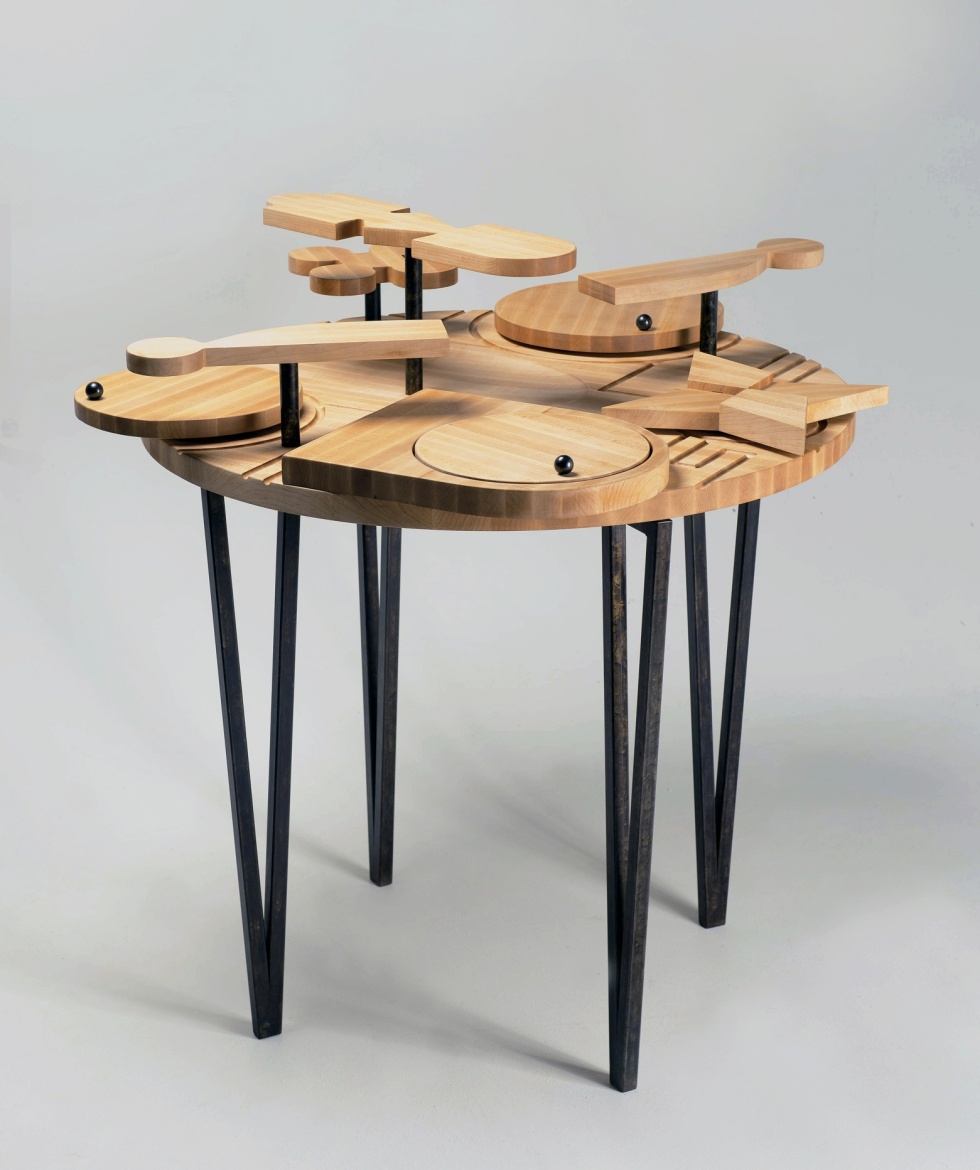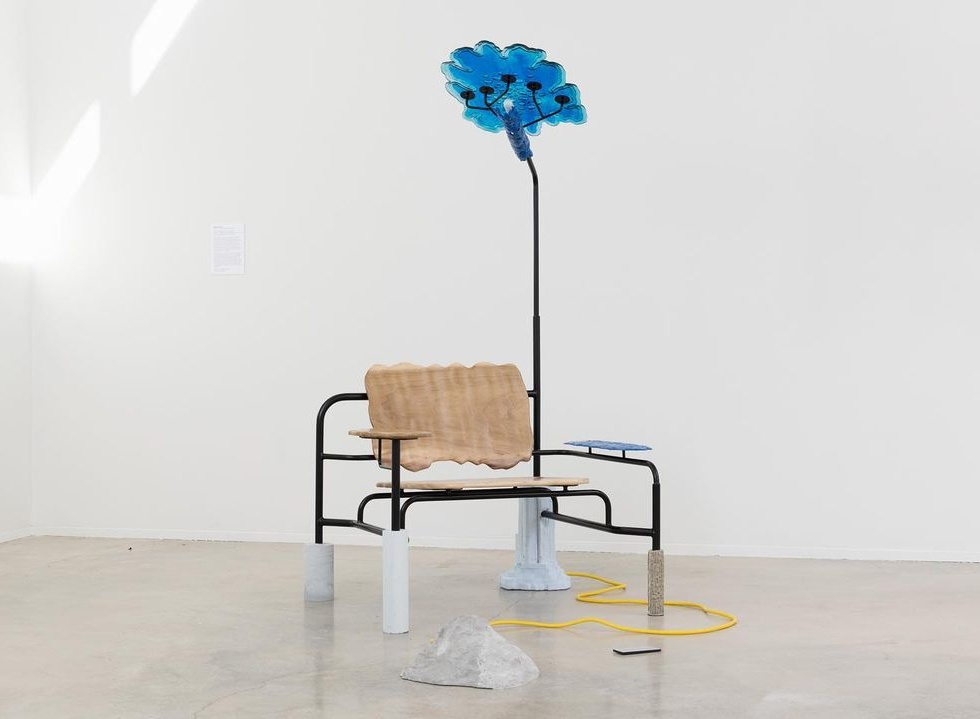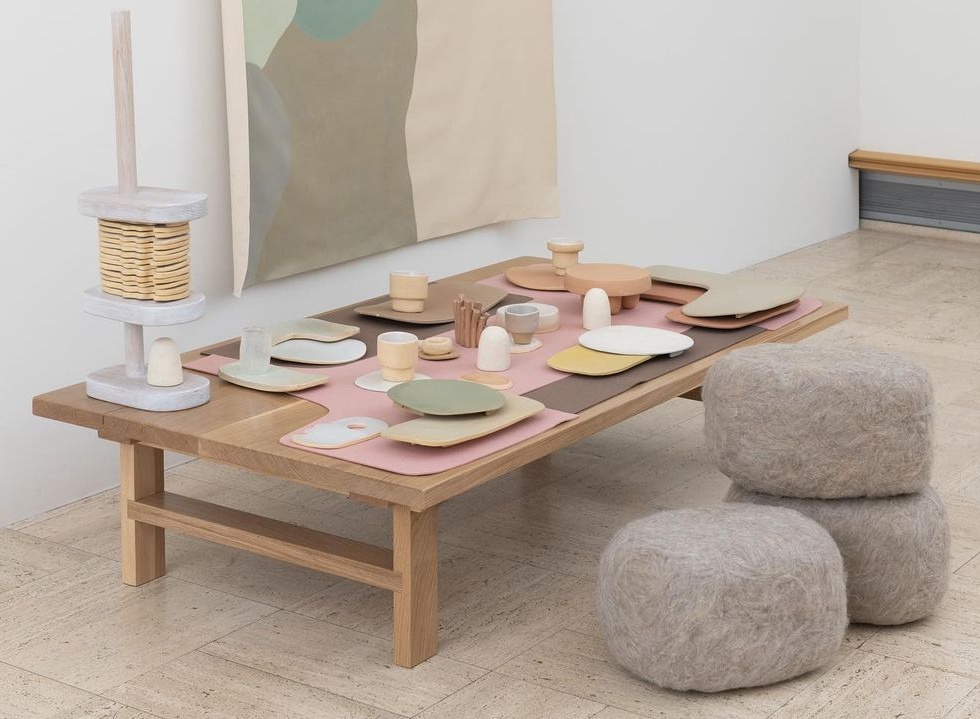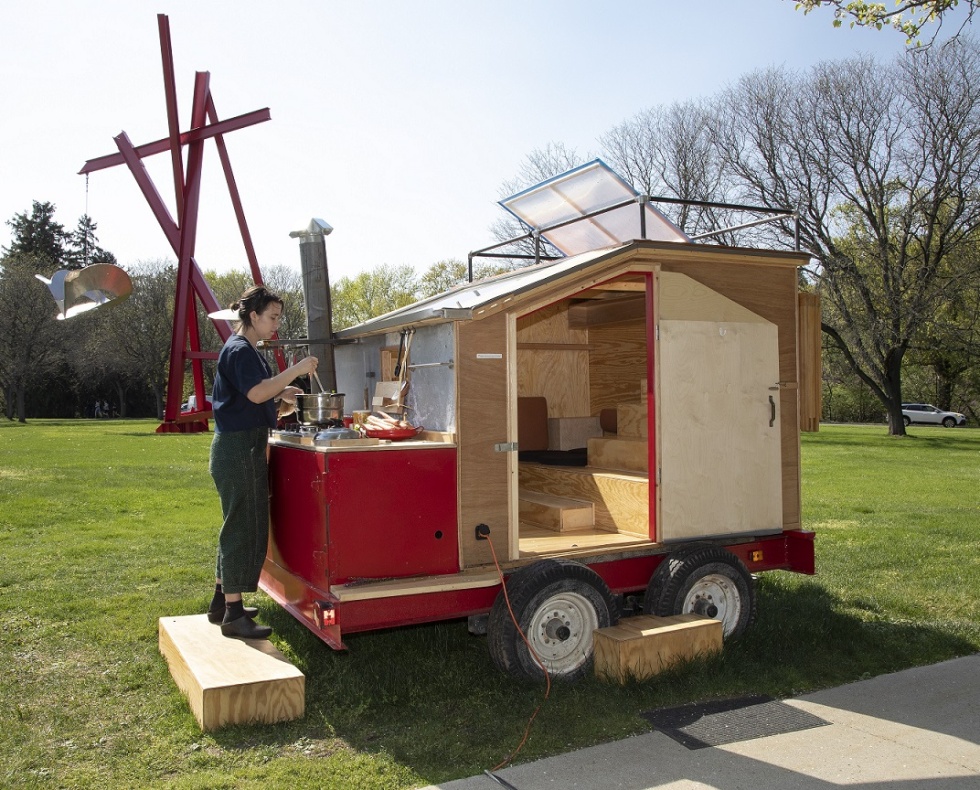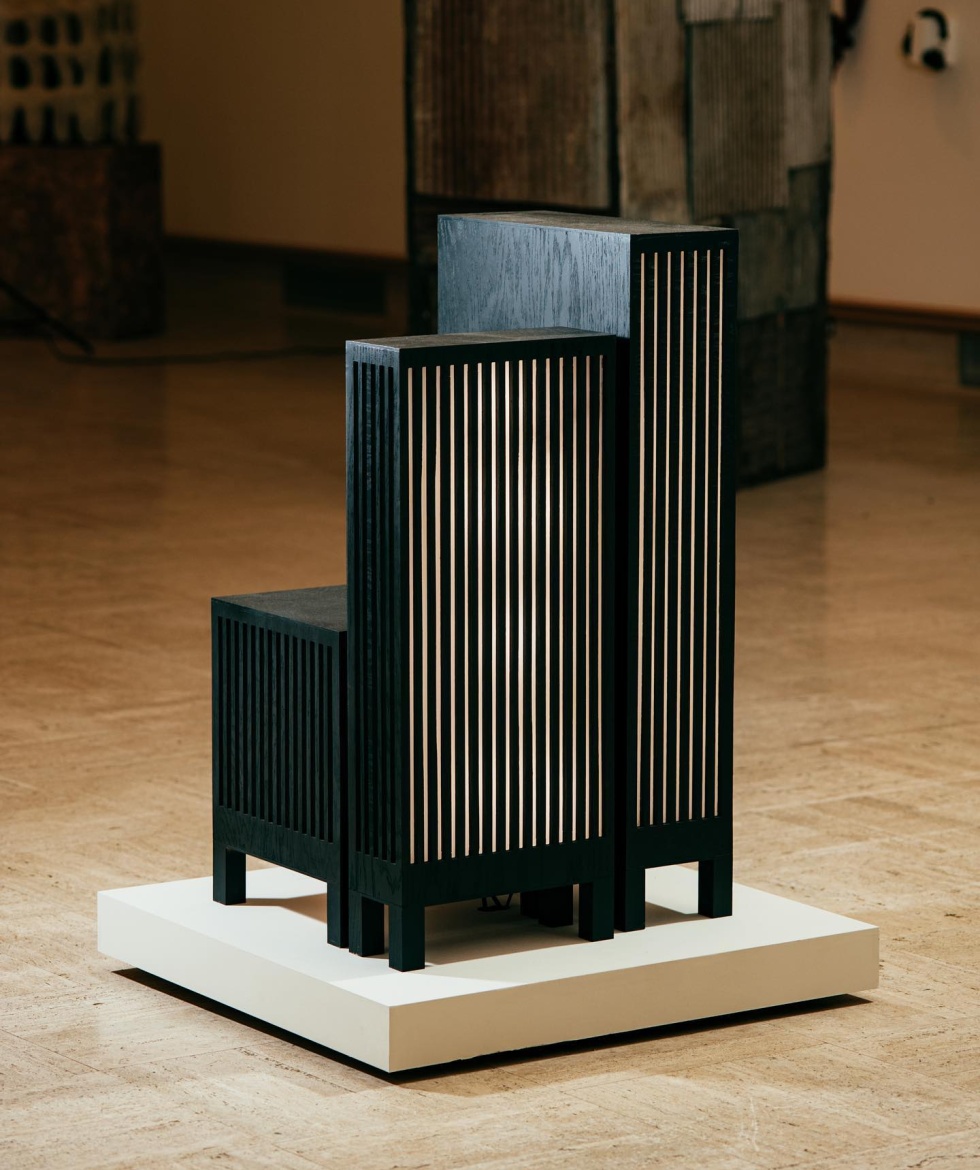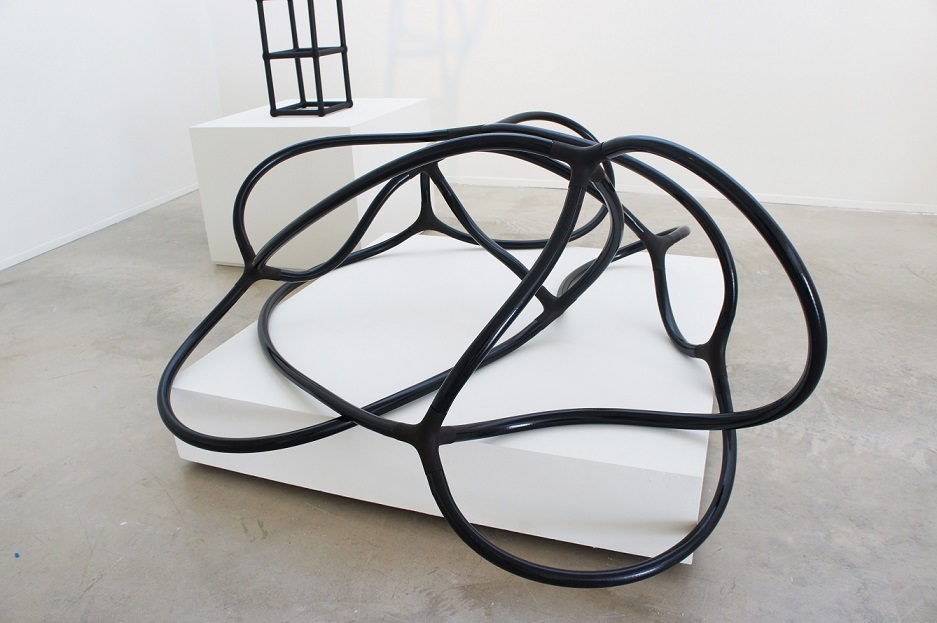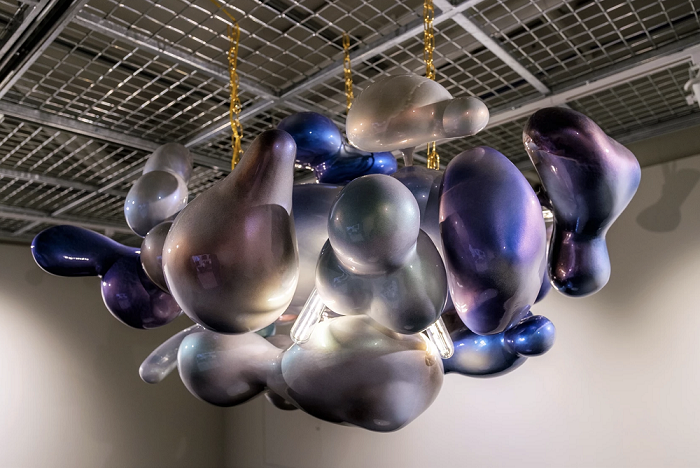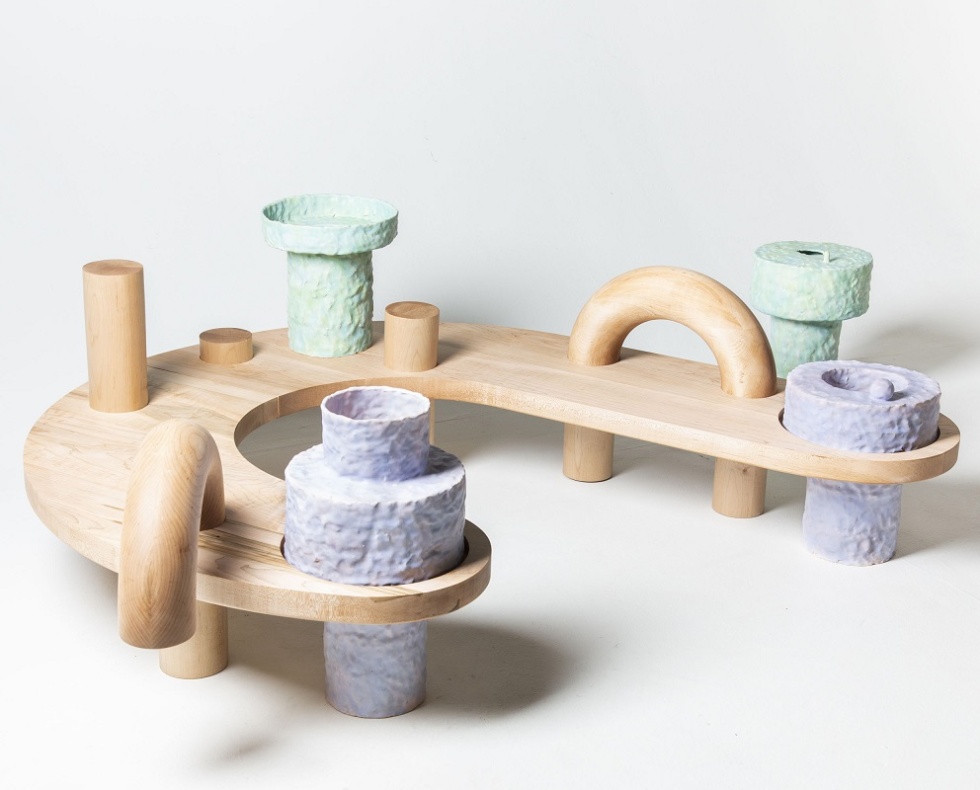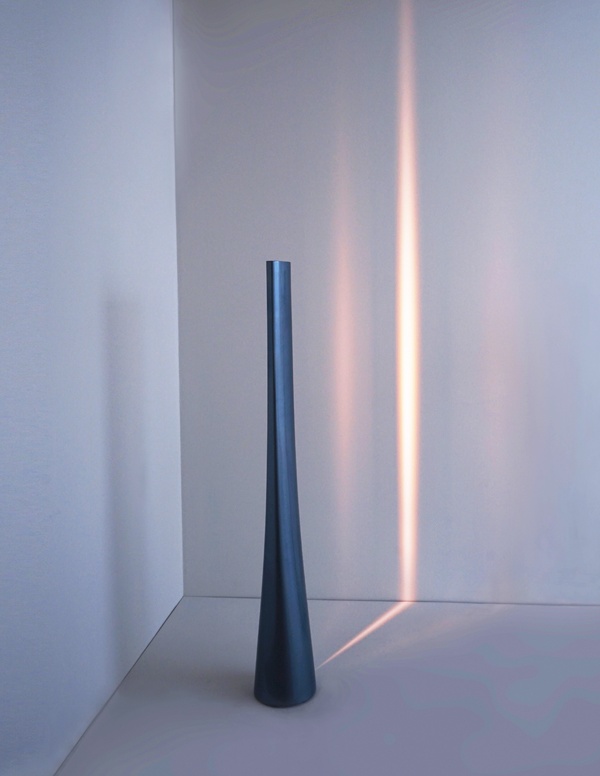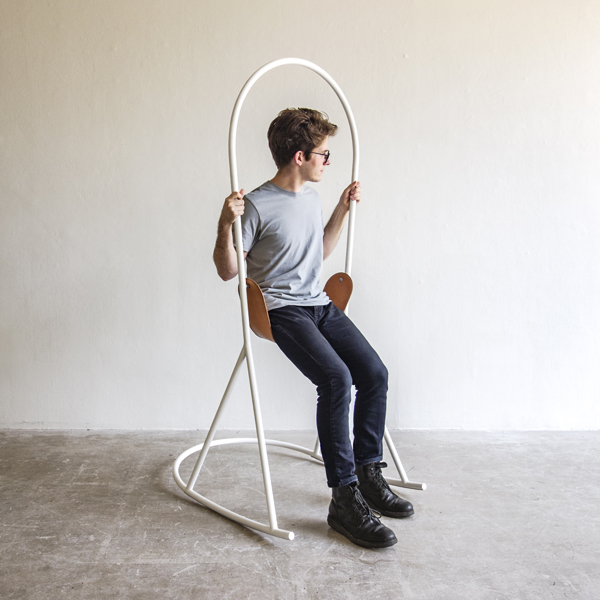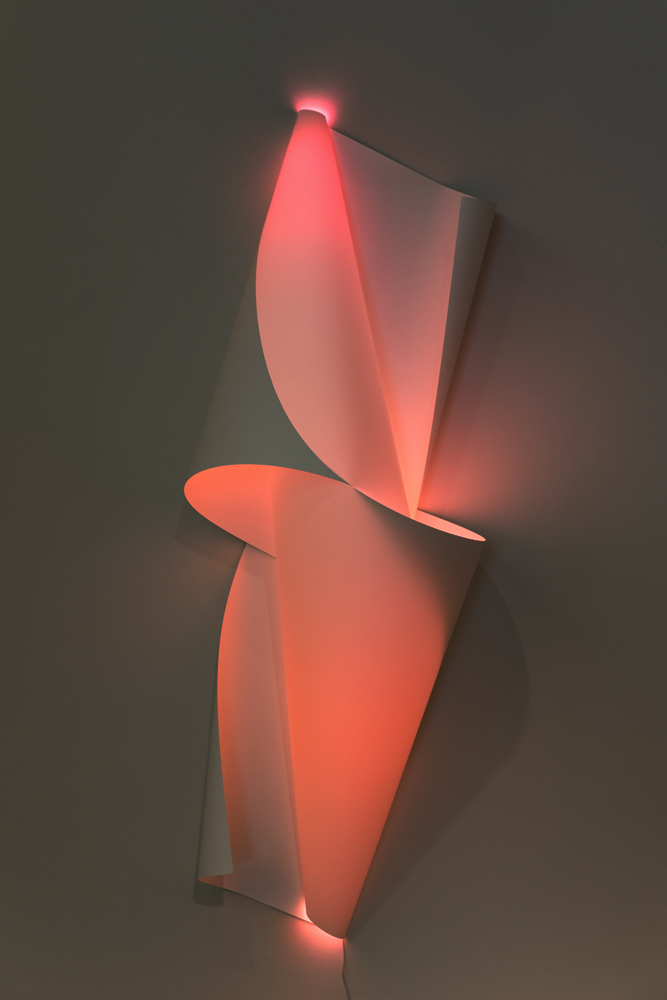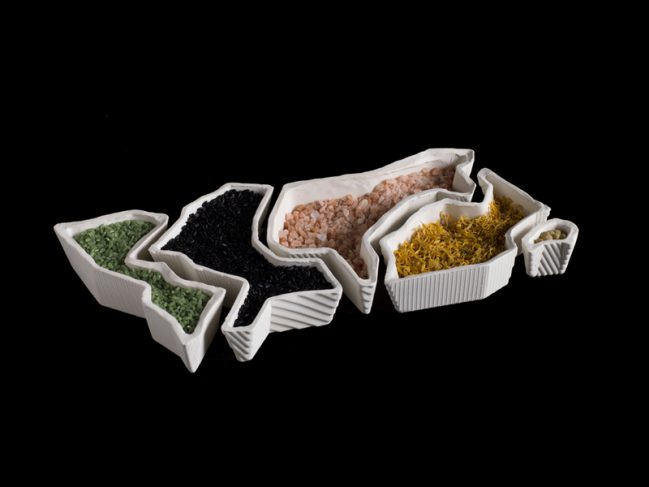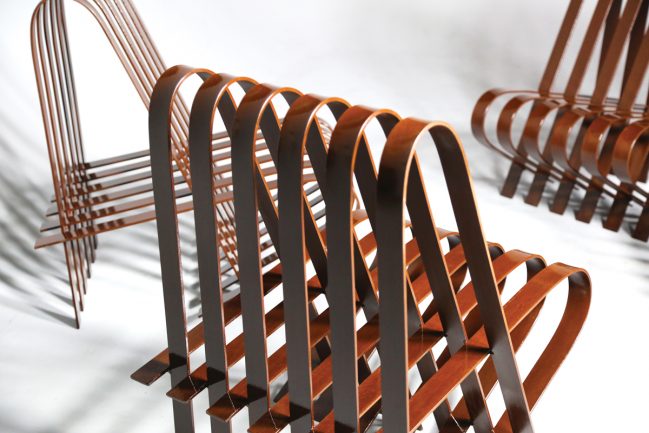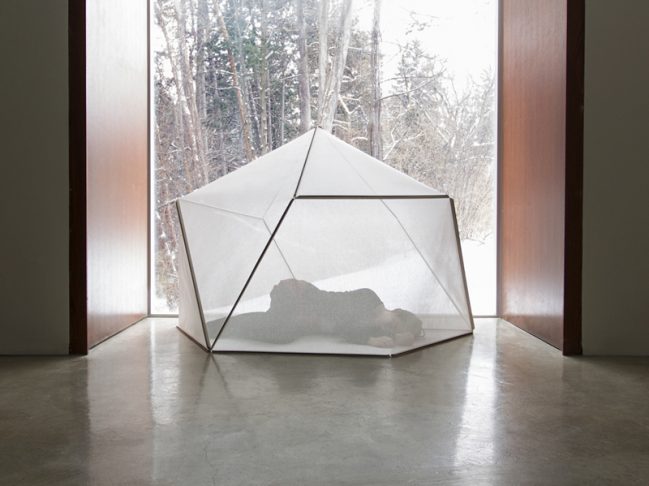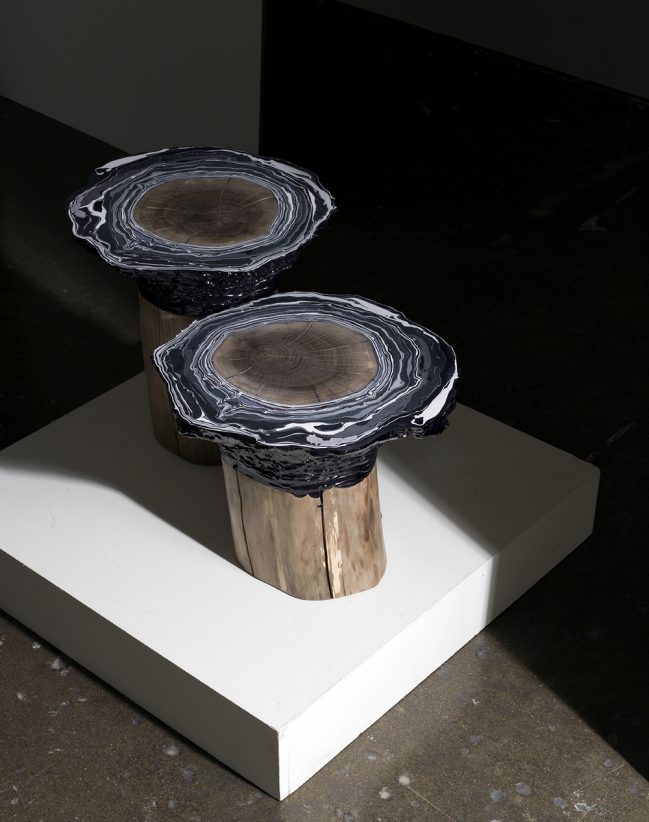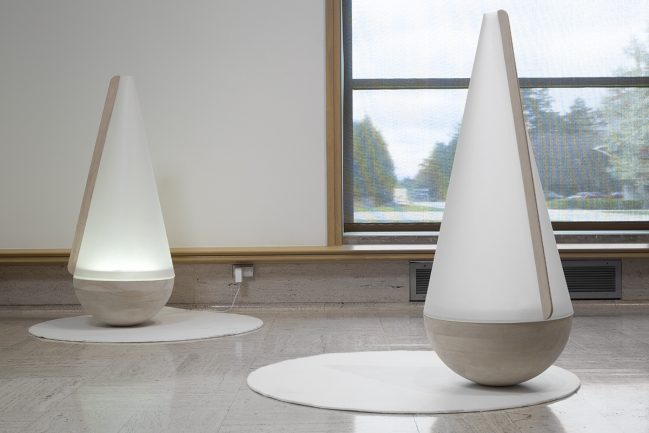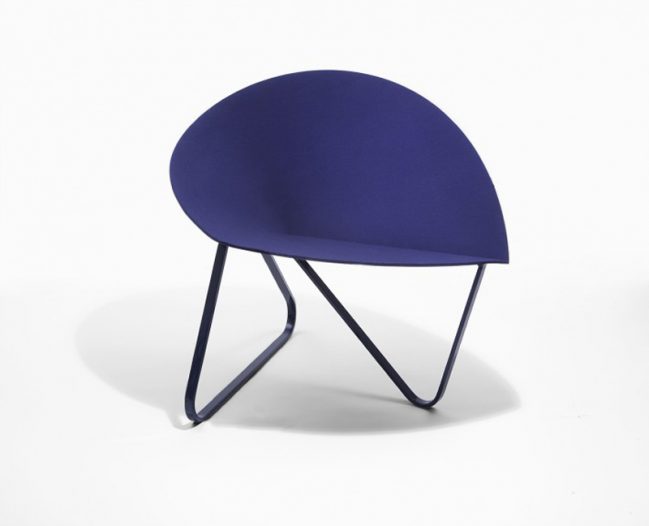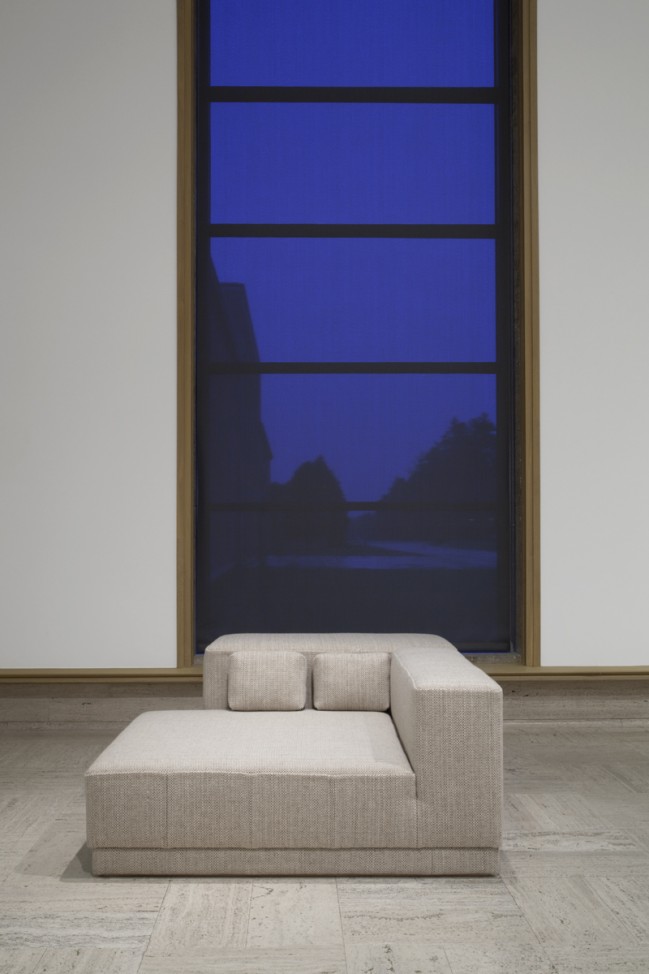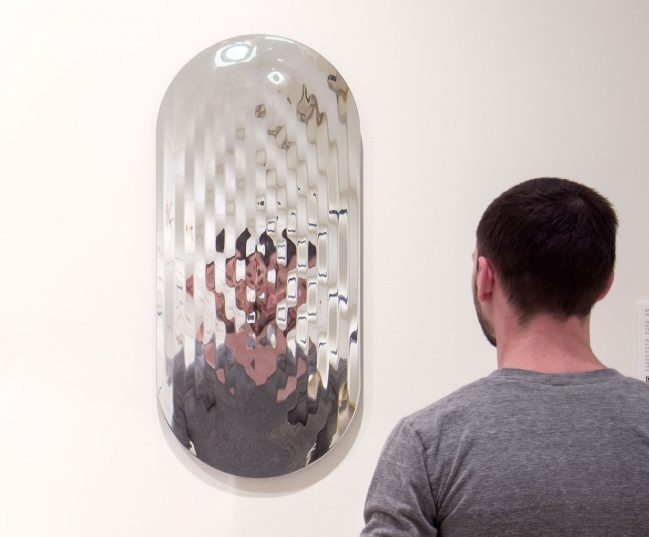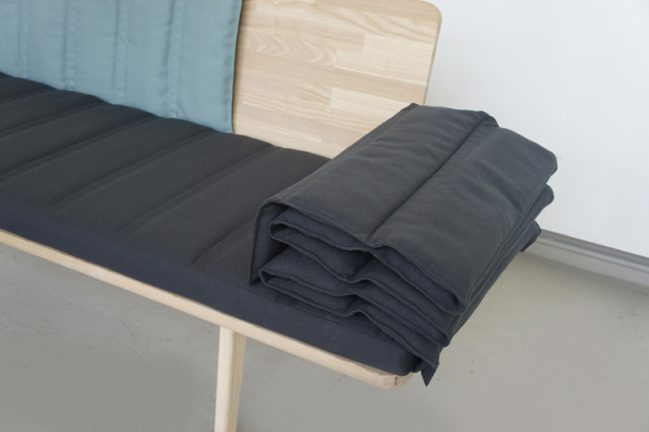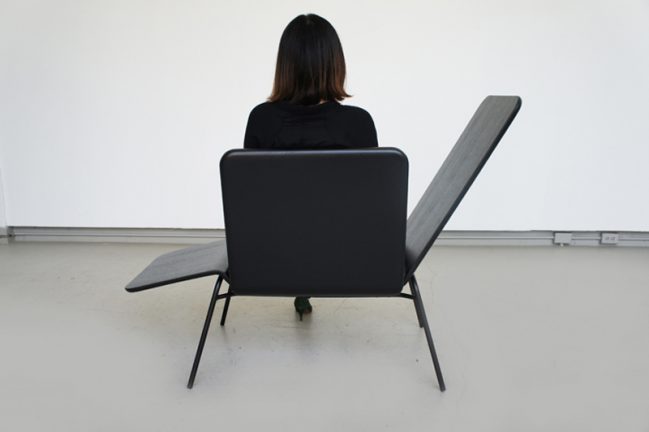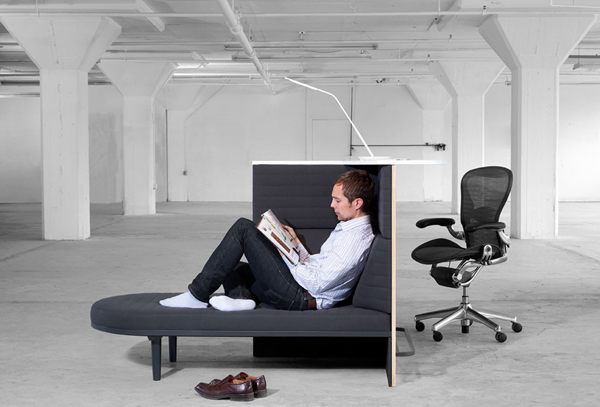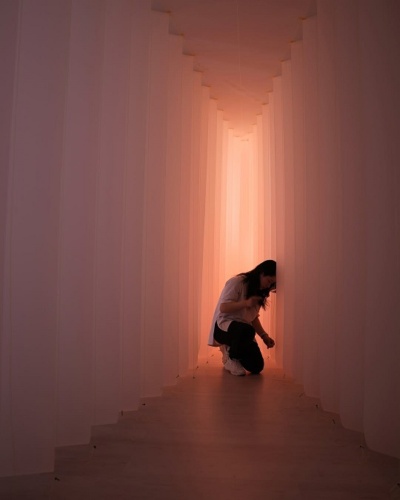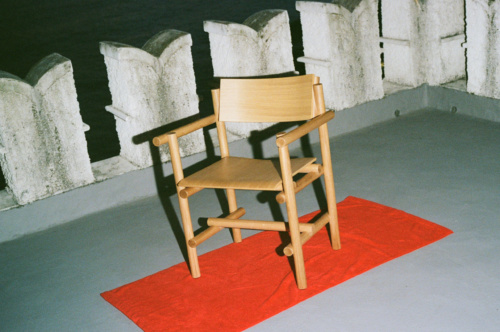Kim Swift (MFA 3D Design 2024)
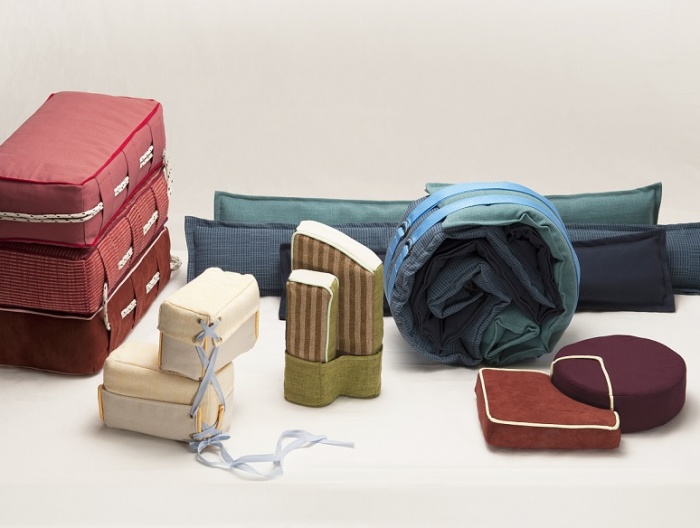
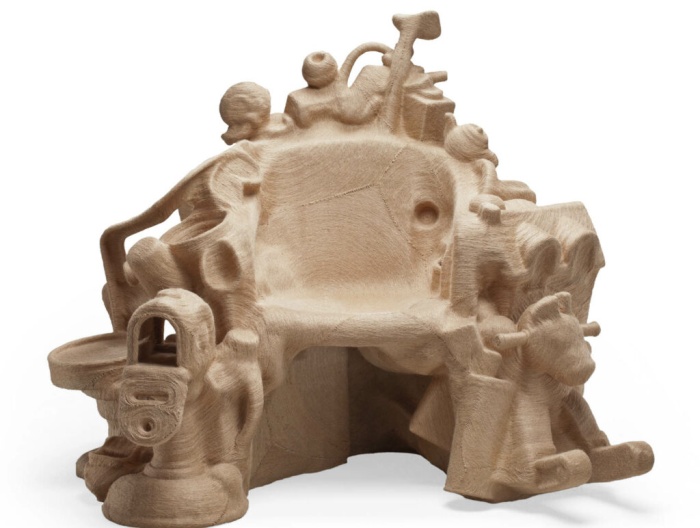
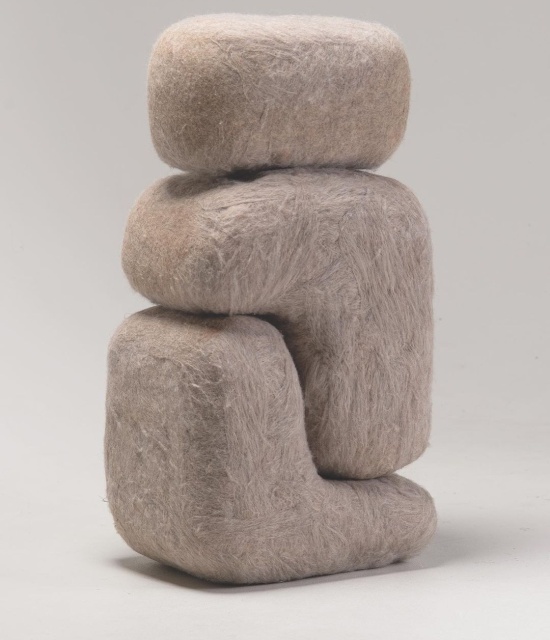
Industrial Design
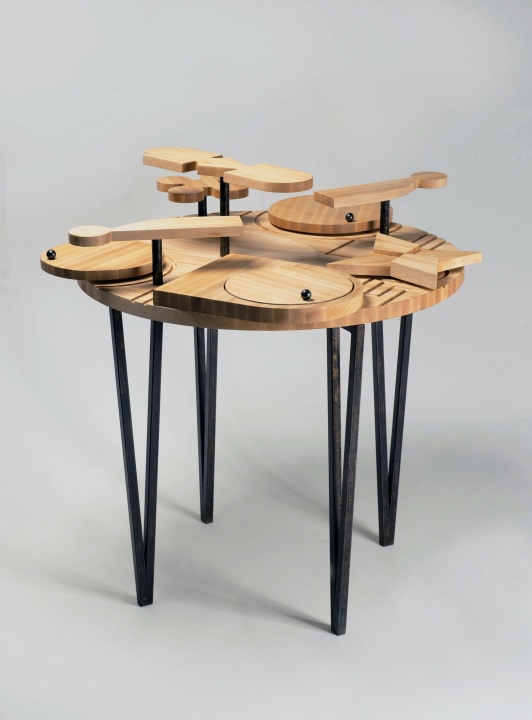
Industrial Design Philosophy
Industrial Design Philosophy
An experimental laboratory to explore human needs as expressed in the furniture and objects of daily life
Industrial Design at Cranbrook straddles industrial and fine design contexts, with an approach informed by architecture, interior design, and craft. Driven by exploration and risk-taking, the department fosters a deep engagement with the field of design and does not adhere to a single aesthetic or conceptual approach. Through active questioning and making, students develop an understanding of the connections between forms and ideas creating a framework for process and idea generation that can transition to projects at a variety of scales, including furniture, lighting, and objects for daily use.
Each cohort is an intentional mixture of industrial designers, architects, craftspeople, and sculptors providing diverse perspectives that broaden design discourse and help expand the field. Conversations draw on ideas from related academic disciplines including literary theory, psychology, philosophy, and the social sciences, as well as business, engineering, and marketing. Taken as a whole, these strategies provide essential tools for expanding a designer’s work and positioning them for professional practice.

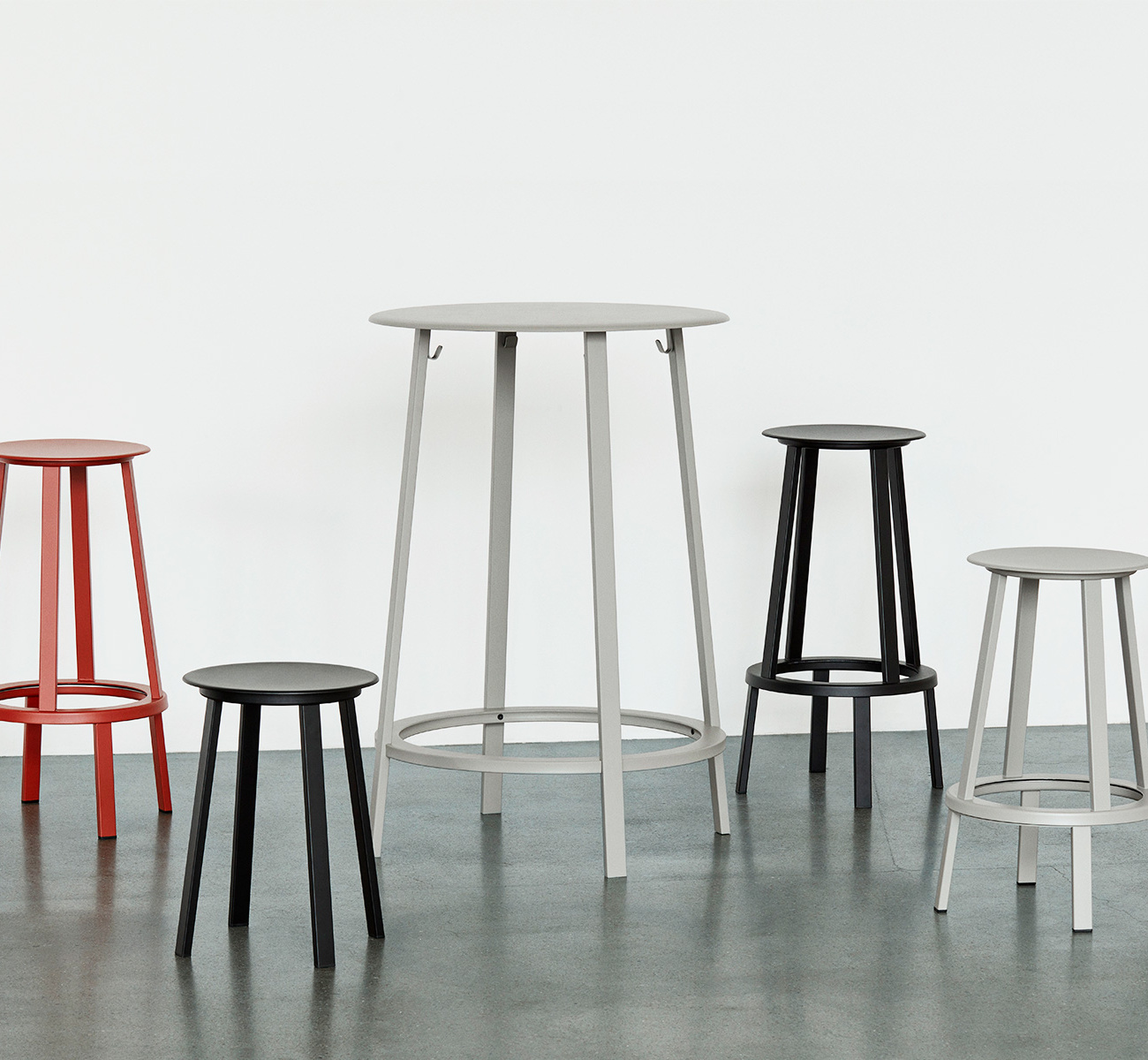
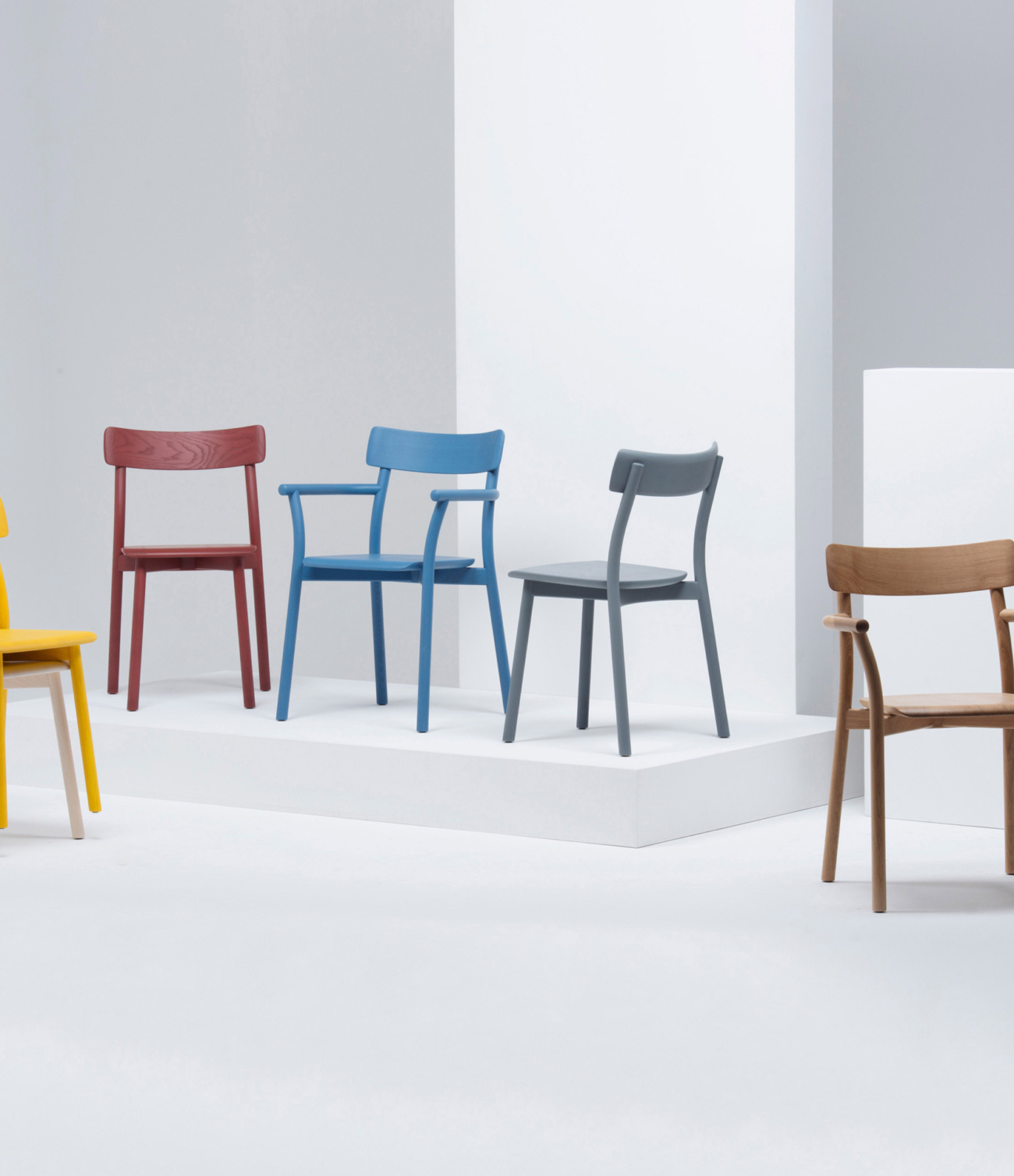
FACULTY
FACULTY
Leon Ransmeier
Leon Ransmeier’s design philosophy is rooted in simplicity, usability, and a profound understanding of materials and manufacturing processes.
Ransmeier is the founder and director of Ransmeier, Inc., a New York-based design office he launched in 2010 that has collaborated with iconic brands such as Droog, HAY, Herman Miller, Maharam, and Mattiazzi. His notable designs include the Revolver Bar Stool for HAY, and the Chiaro chair for Mattiazzi.
His work has been exhibited at the Cooper Hewitt, Smithsonian Design Museum; Friedman Benda Gallery; Swiss Institute; and the San Francisco Museum of Modern Art (SFMOMA) and is included in the permanent collections at SFMOMA and the Corning Museum of Glass.
Beyond his design work, Ransmeier has enriched the field with his writings on design, art, and architecture for esteemed publications such as Apartamento, Disegno, and PIN-UP.
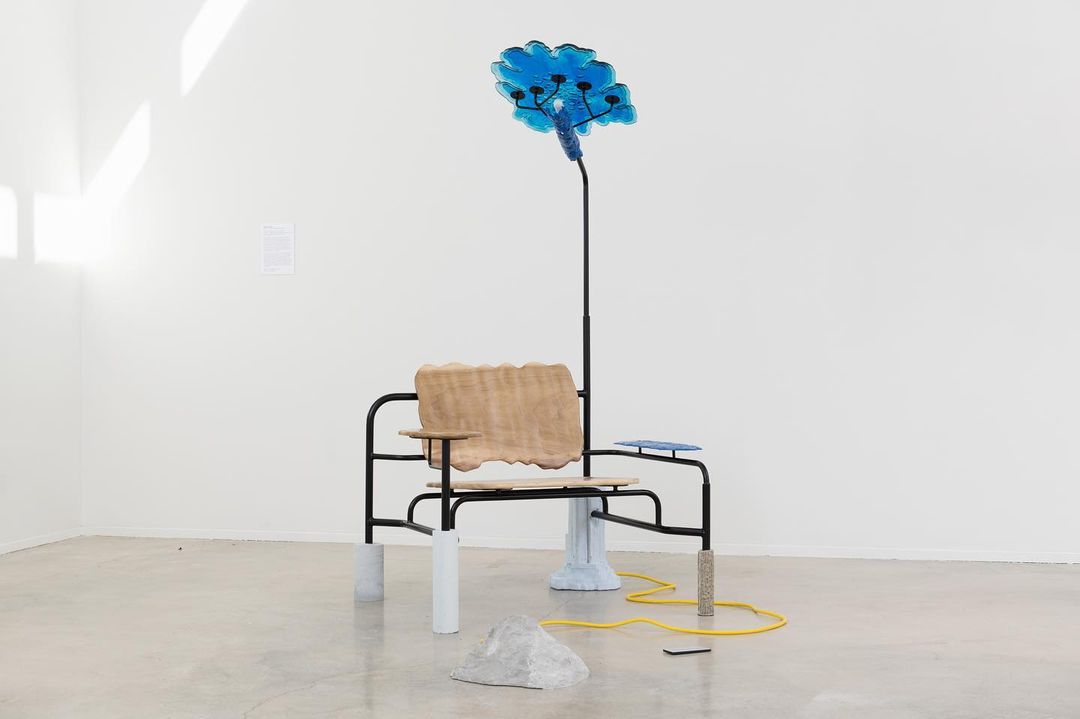
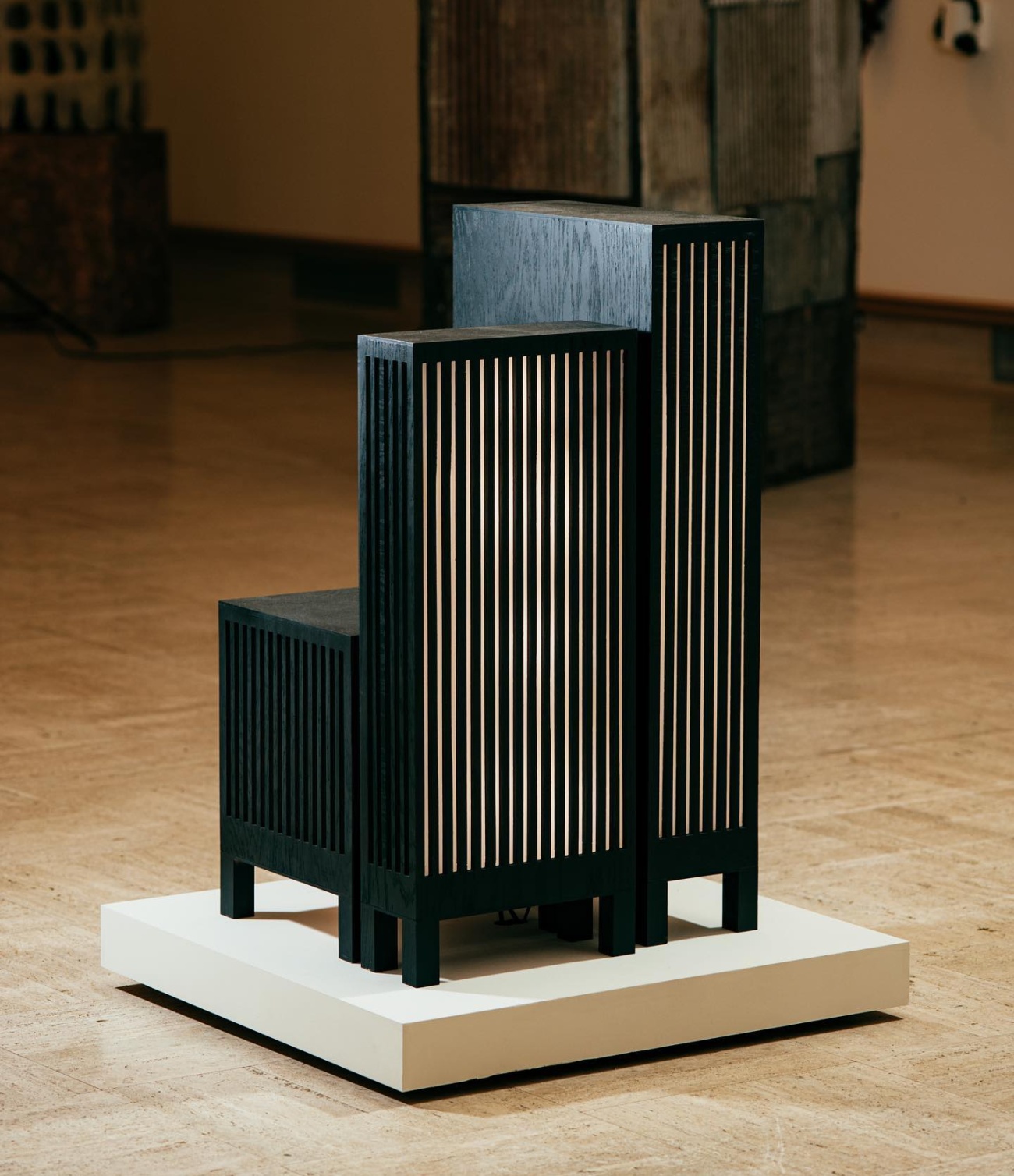
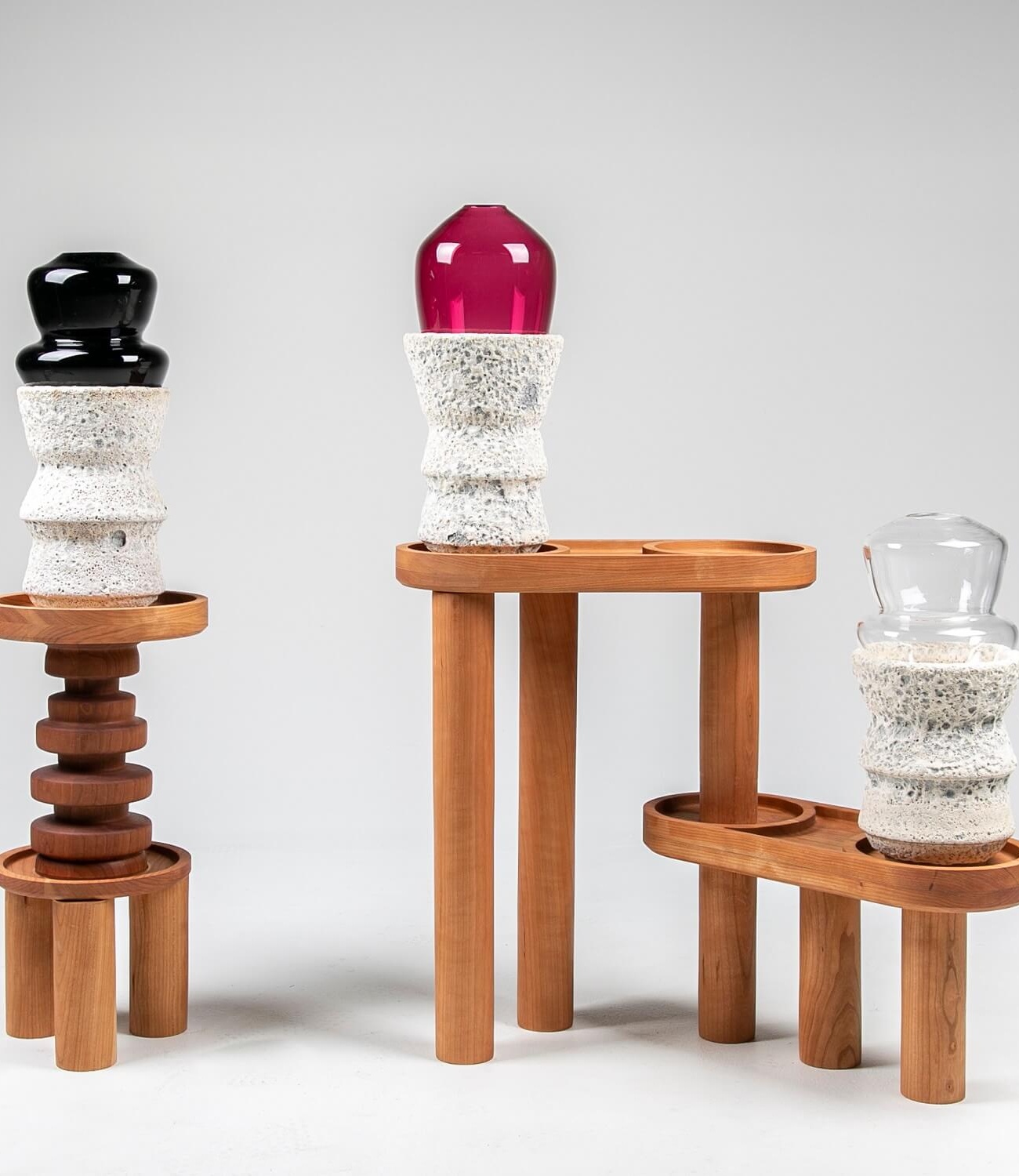
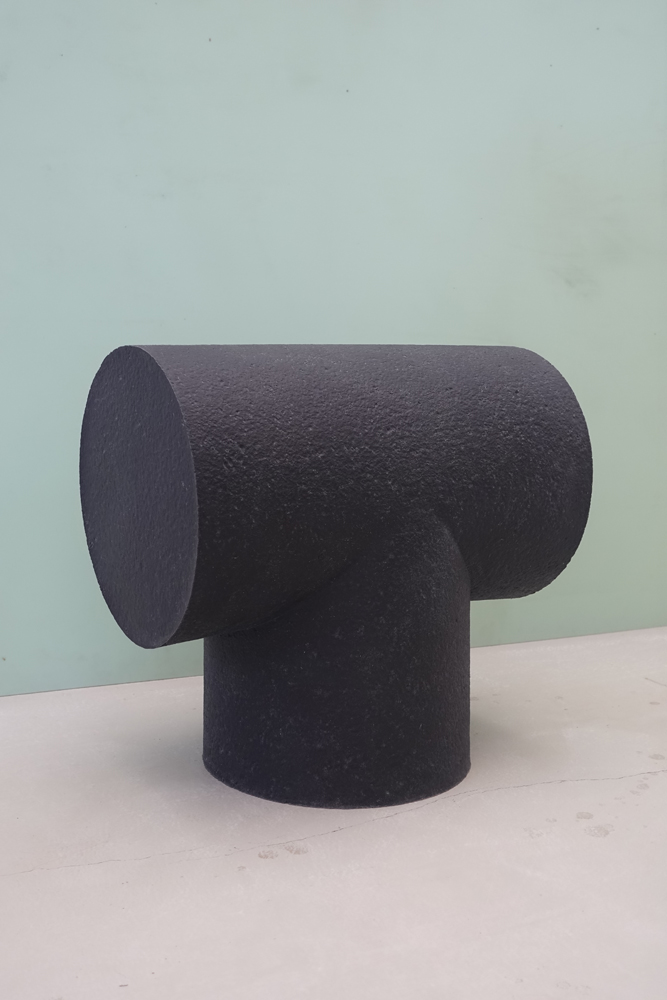
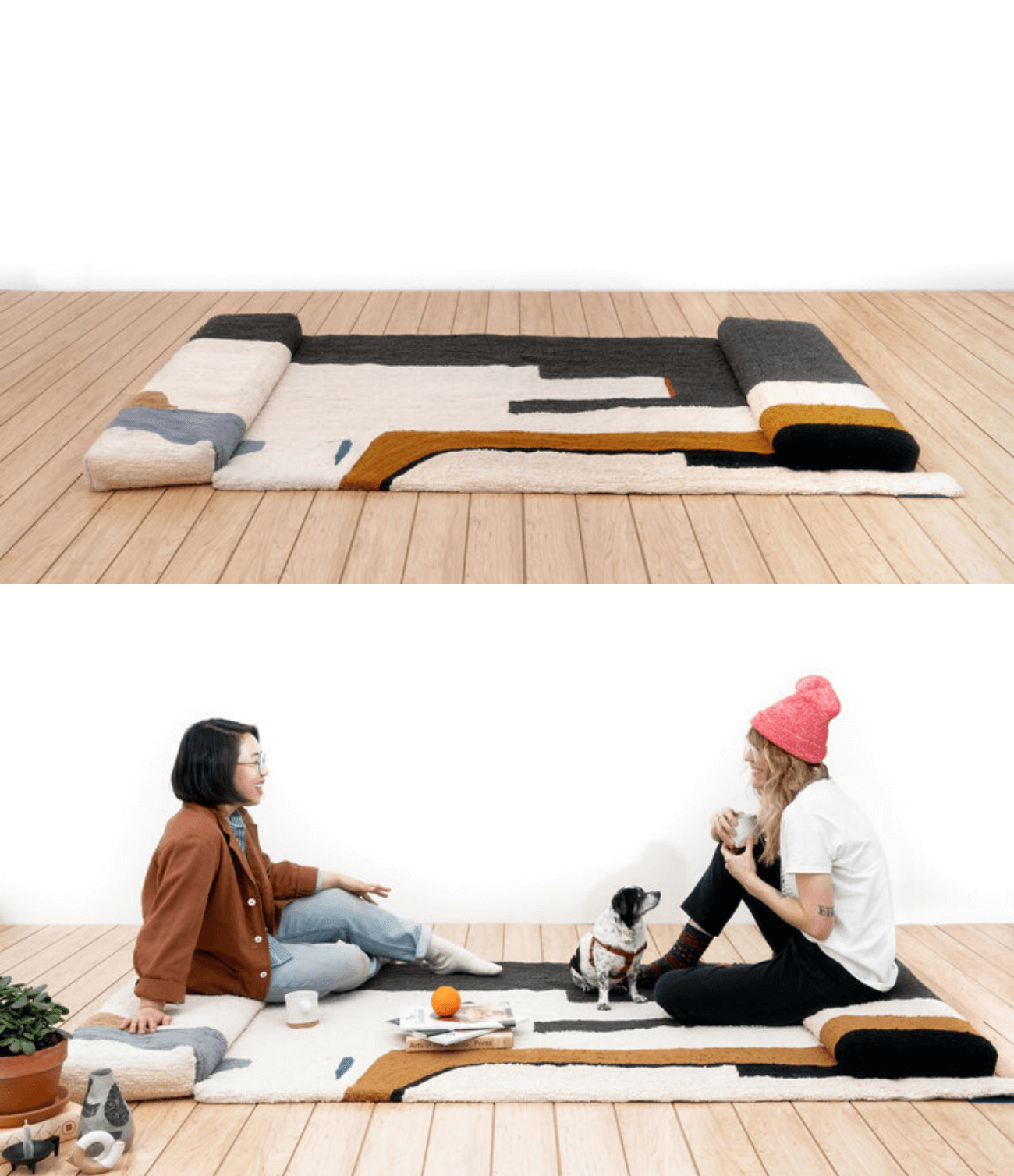
Industrial Design Program
Industrial Design Program
Shaping skilled makers through intense studio work, mentorship, and industry exposure
Industrial Design students are carefully selected by the Designer-in-Residence to allow for a free exchange of ideas while bringing out the strengths of each student. Our program is best suited to experienced, hands-on makers. The work undertaken over the course of a student’s two years of study is focused on self-initiated research supported by hands-on mentorship and peer-to-peer opportunities and projects. Students develop the skills needed to undertake critical analysis through group seminars, challenging readings, and ongoing writing that help articulate individual concerns and the ideas of others.
We host ongoing visits with top professionals in a variety of industries, allowing our students to see many models of practice. This provides professional connections and helps students shape their career paths as they leave Cranbrook.
The department regularly travels to leading design companies, local studios, and workshops. We also often participate in exhibitions, both locally and in other cities, such as the International Contemporary Furniture Fair in New York, where students gain invaluable exposure and are immersed in the field of contemporary design.
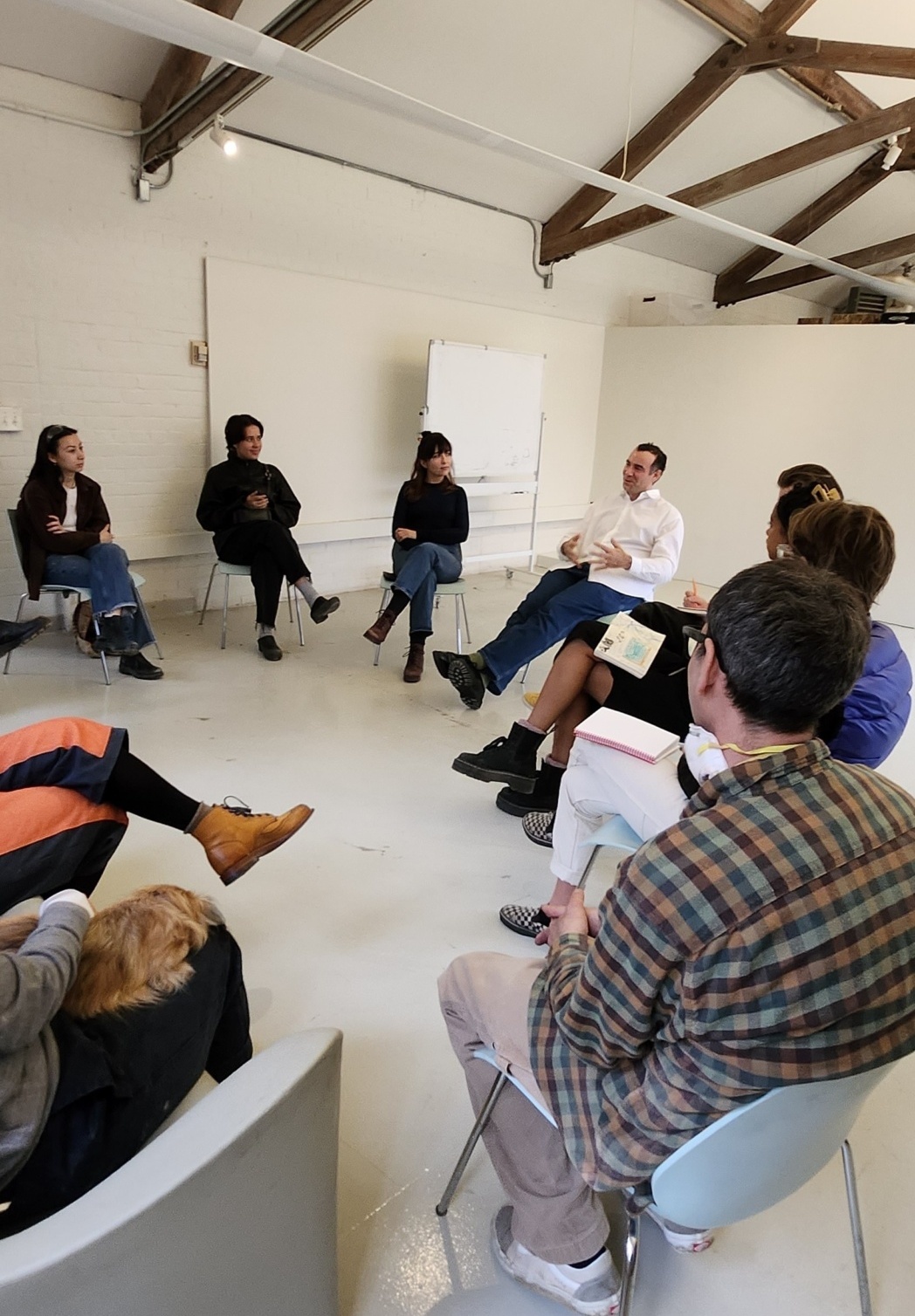
INDUSTRIAL DESIGN VISITING ARTISTS/CRITICS
INDUSTRIAL DESIGN VISITING ARTISTS/CRITICS
The most influential thought-leaders in design visit as guest speakers and critics in our studio
Industrial Design regularly hosts visits with leading designers from around the world. These visitors meet with students, lead discussions and seminars, present lectures on their professional practice, and use the studio as a testing ground for new ideas. This might take the form of short-term assignments, material explorations, and demonstrations of traditional and emerging processes. Group dinners in the studio provide another way to engage with these visitors and provide the opportunity for students to have informal conversations that often lead to personal connections and professional development opportunities.
In addition to our ongoing visitors, the Industrial Design department also hosts the annual Knoll Lecture in Design. Established in 2004 in honor of Florence Schust Knoll Bassett, who studied at the Academy before launching the successful Knoll furnishings company, the lecture series brings the world’s most innovative designers and thinkers to Cranbrook’s campus to speak about their practice.
-
Max Lamb
-
Anthony Dunne and Fiona Raby
-
Masamichi Udagawa and Sigi Moeslinger
-
Sam Hecht and Kim Colin - Industrial Facility
-
Martino Gamper
-
Bertjan Pot
-
Lindsey Adelman
-
Katie Stout
-
Aldo Bakker
-
Allan Wexler
Select Visiting Designers
Select Visiting Designers
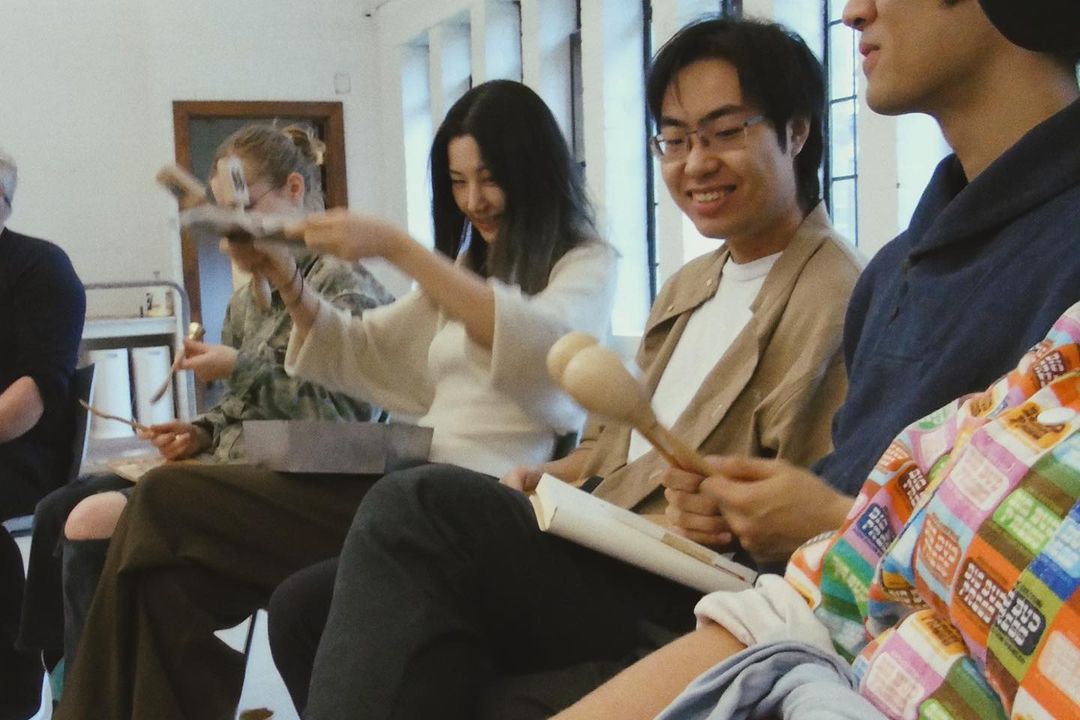
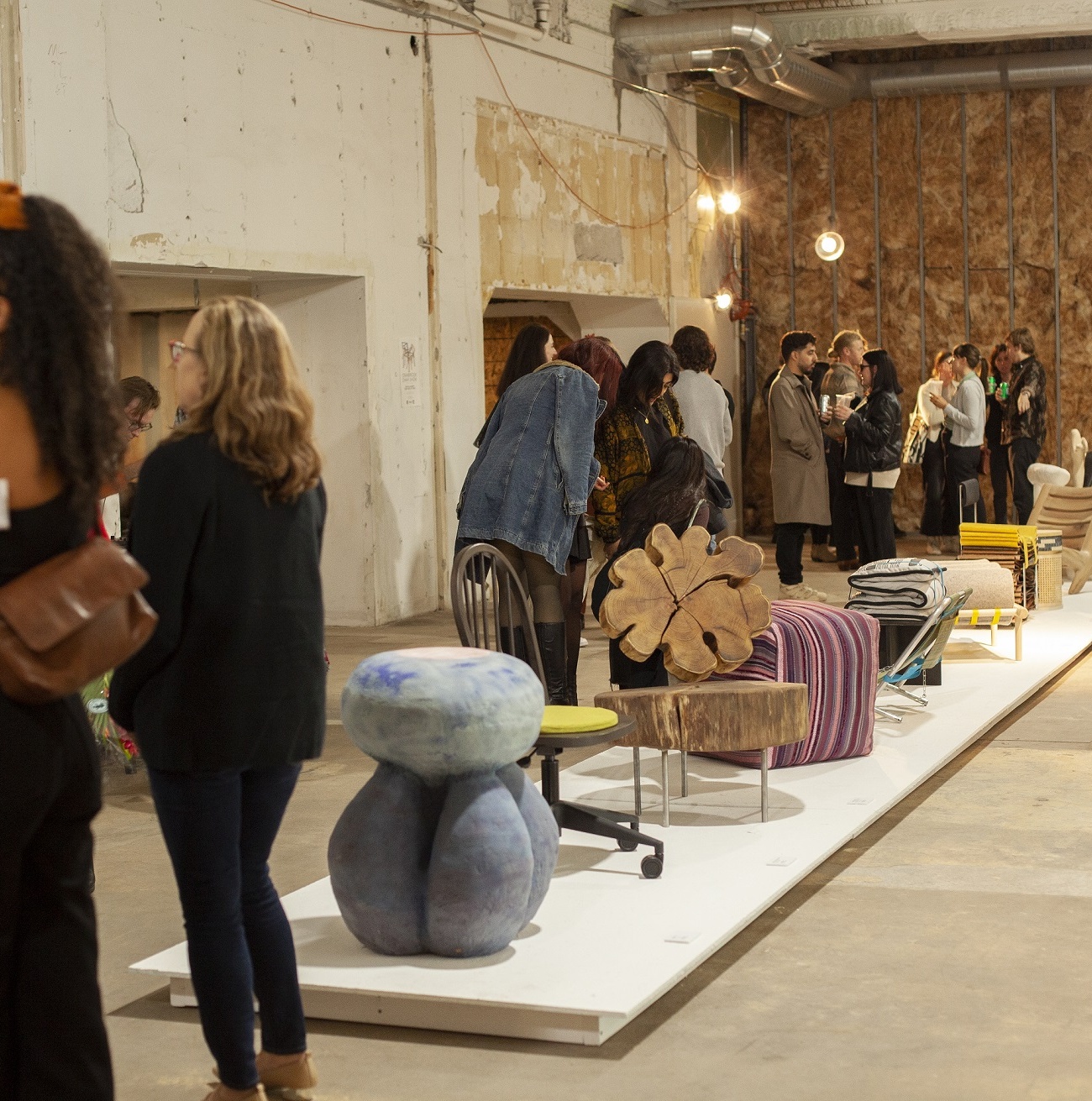
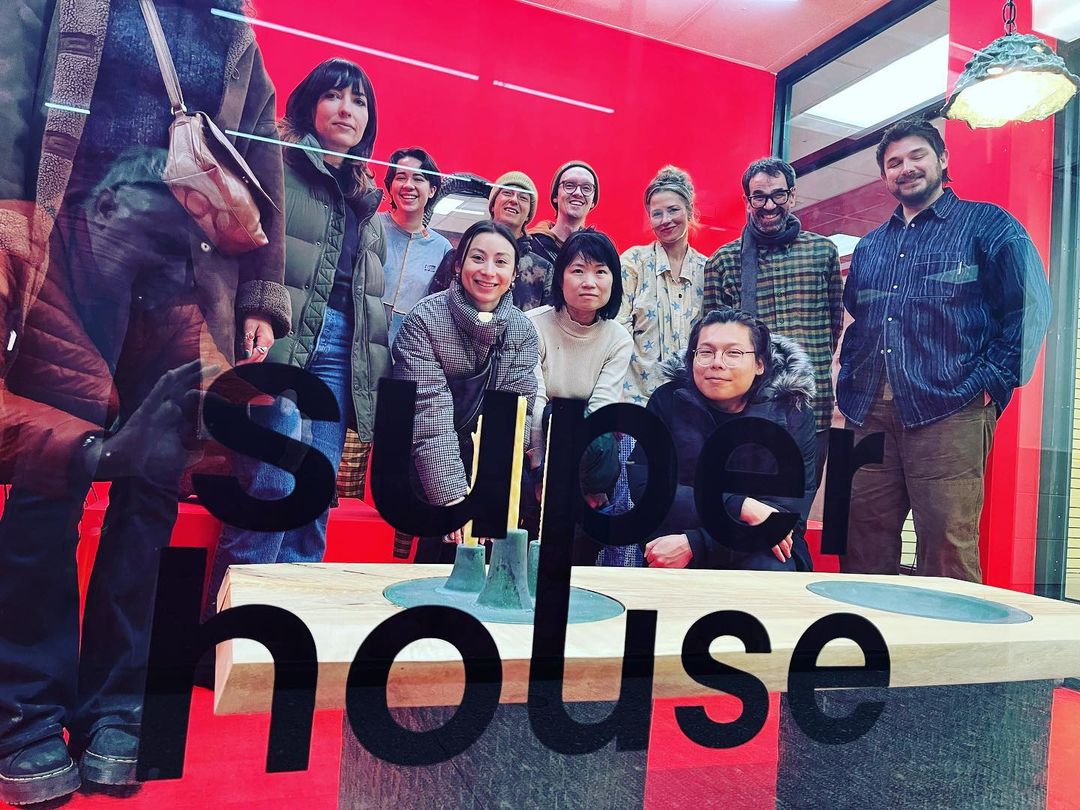
Industrial Design Experience
Industrial Design Experience
Making work, testing its capabilities, and reimagining the potential of design
Focused and sustained studio practice is at the core of the Industrial Design department. Weekly critiques, design charettes, discussions with visitors, and ongoing conversations with fellow students create an intense studio environment that is both rigorous and supportive.
The collective spirit of the department is essential for creating a sense of community. The studio of Scott Klinker, Designer-in-Residence, is in the same space, allowing for easy access to their professional practice and regular engagements for formal and informal interactions. A common kitchen and social areas allow for informal conversations as well as a weekly group breakfast before critiques and regular dinners with visiting critics and designers.
Strong industry ties bring a diverse roster of visitors, and we also regularly engage in trips to Detroit and the greater Michigan region to visit the studios, workshops/factories of area designers, alumni, and industry leaders.
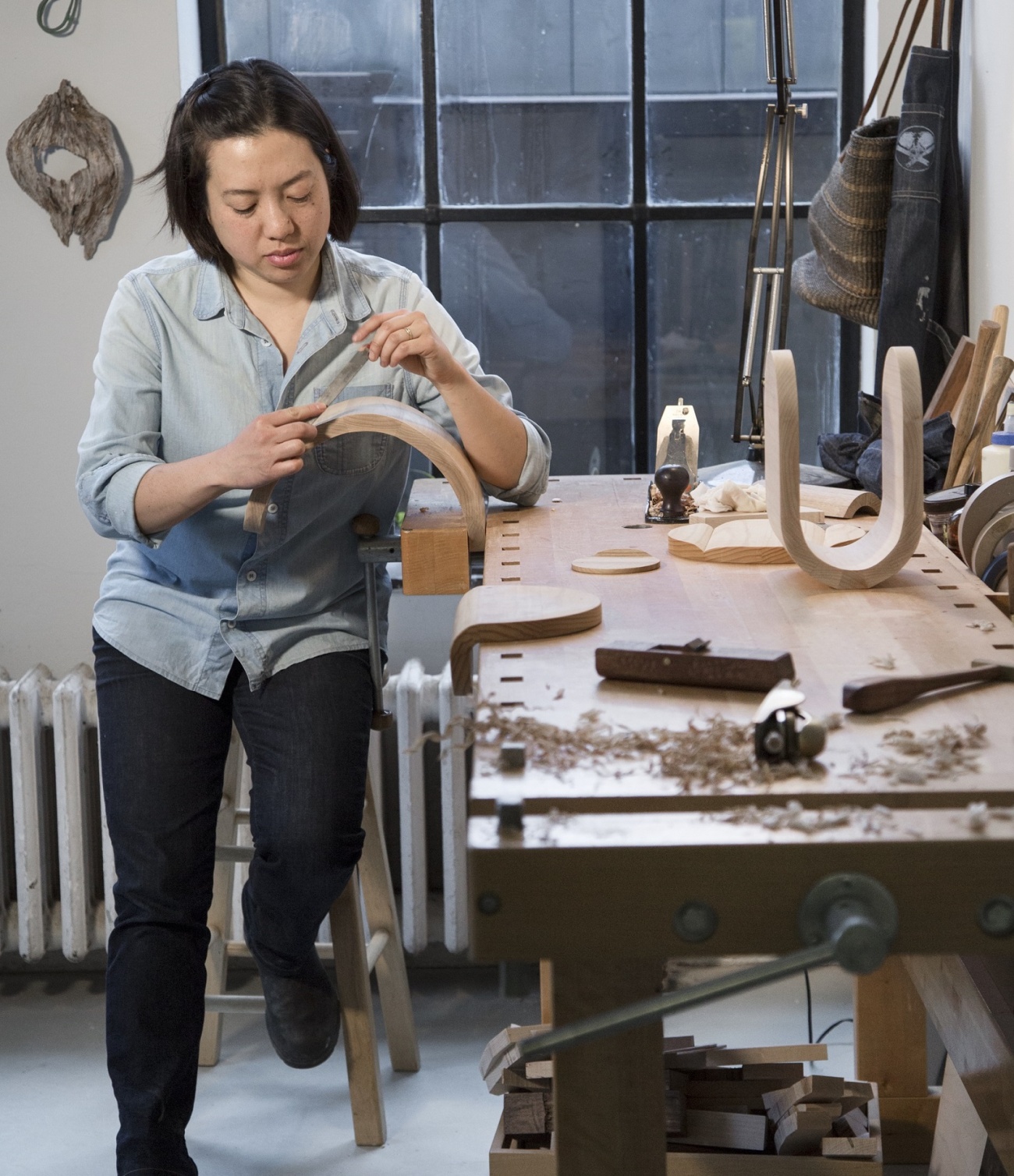
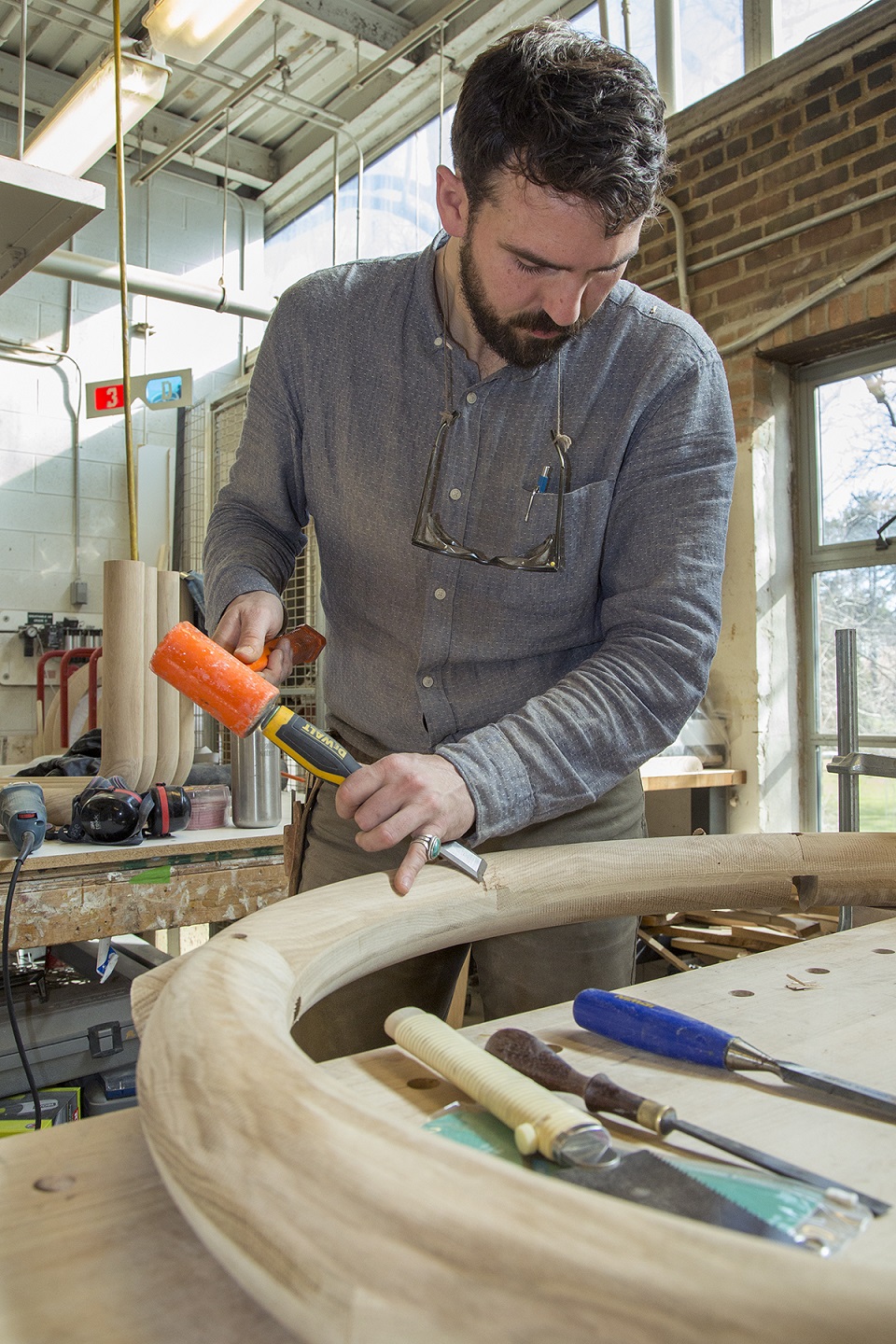
Industrial Design Facilities
Industrial Design Facilities
Housed in a historic building designed by Eliel Saarinen, home to celebrated designers who have produced some of the most iconic objects of our time
Industrial Design provides a combination of individual studios and communal spaces with vaulted ceilings and natural light. Each student receives a semi-private studio space, and the department is equipped to support a wide variety of materials, processes, and equipment. Working at the intersection of craft and design, the studio has a model shop that provides an excellent resource for prototyping work and developing new ideas.
Dedicated facilities in Industrial Design are further supported by the shared resources and workshops of the Academy – providing designers with access to advanced fabrication equipment, digital tools, and skilled technicians.
